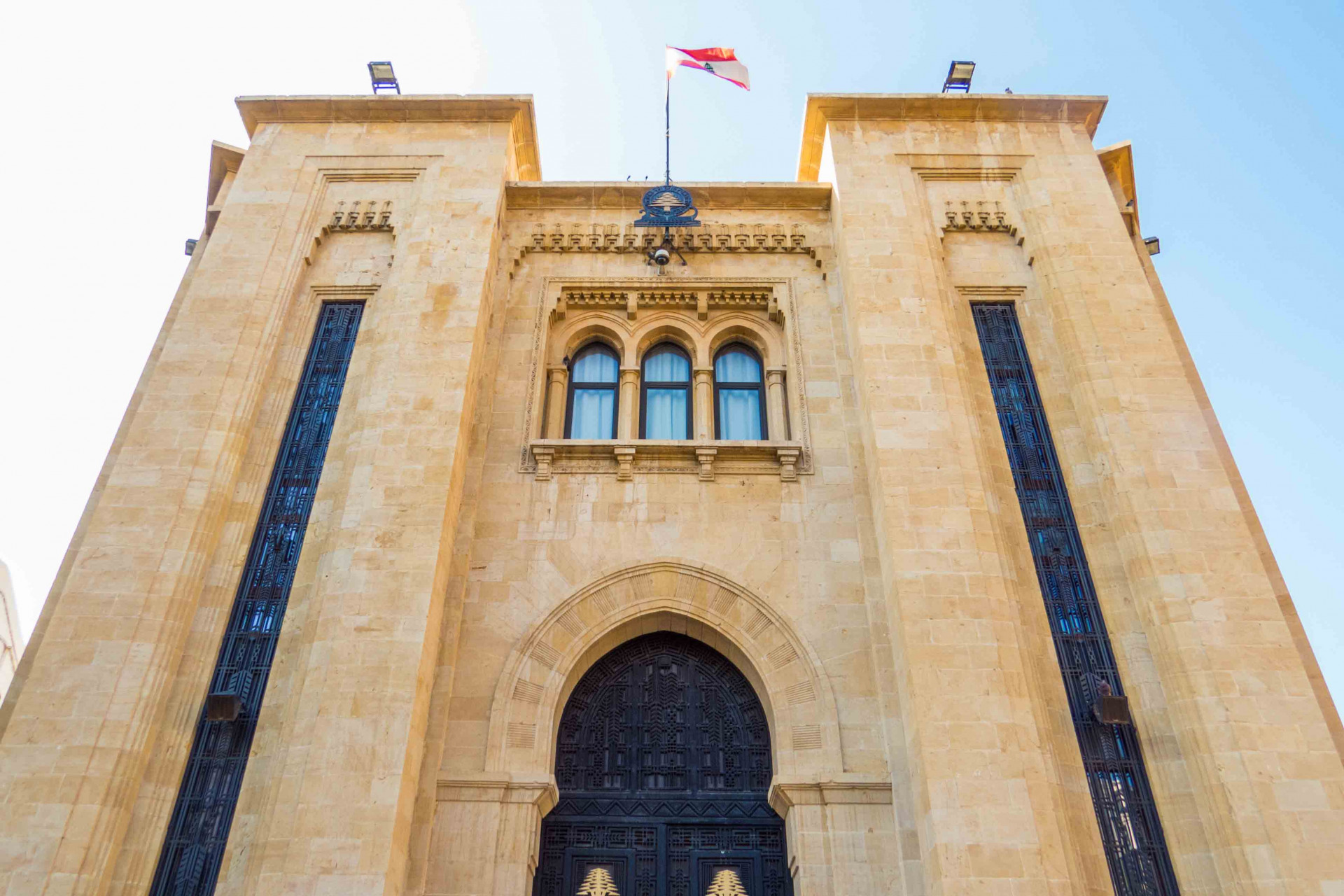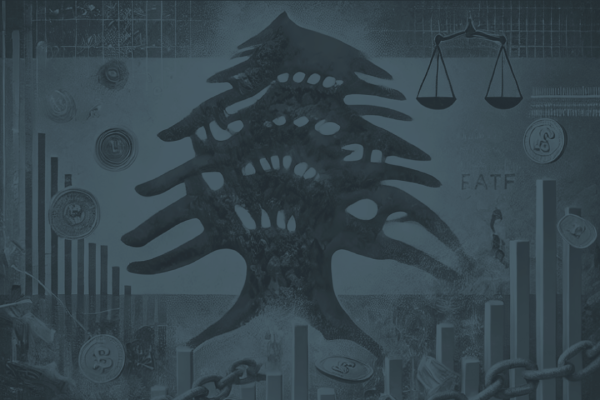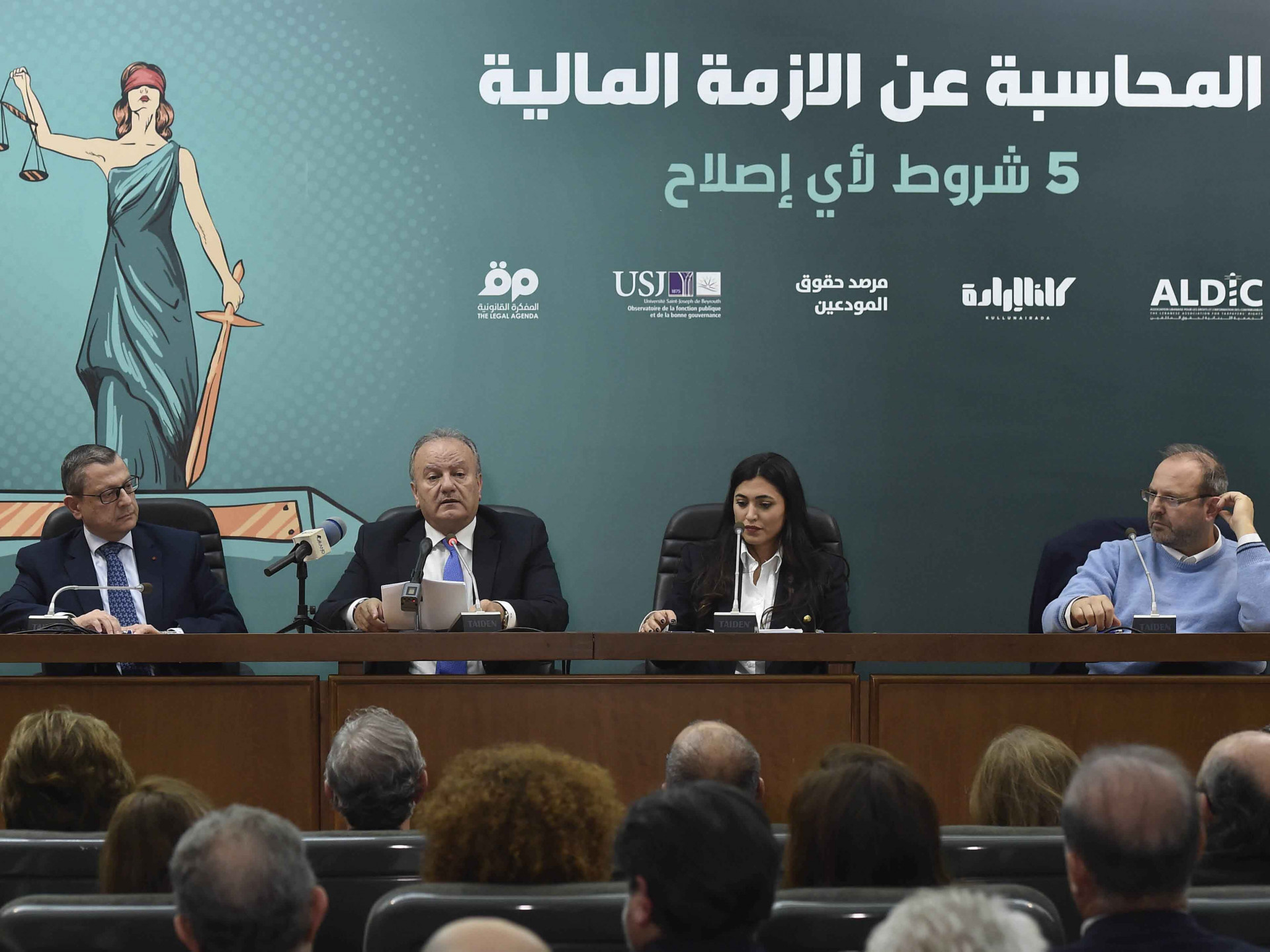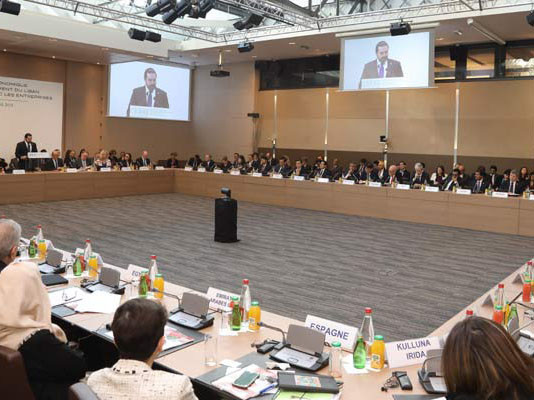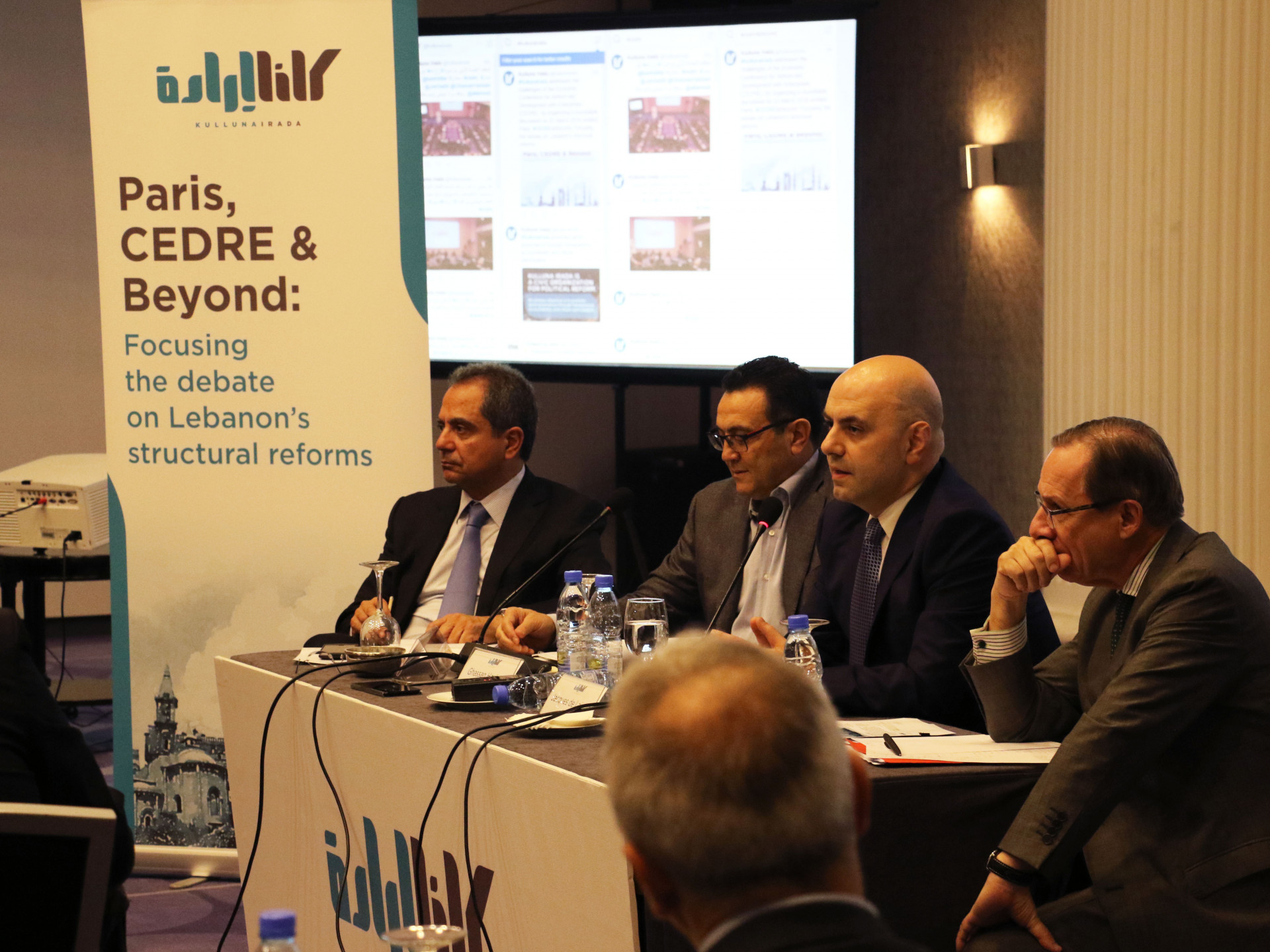The Lebanese Parliament will meet on Tuesday to vote on several articles of the Bank Secrecy Law, in light of the amendments introduced by the Finance and Budget Committee, at the behest of the President of the Republic, and after the International Monetary Fund (IMF) had revoked the previous version of it. The Finance and Budget Committee claims that it has completed its duties in full and responded to the required amendments, but what it has actually done is the exact opposite. A closer inspection of the drafted version reveals a veiled intention to adopt more complex formulations, which ultimately lead to the cementing of bank secrecy under the pretence of lifting it, thus preventing any accountability, perpetuating impunity and a disregard for the law, as well as threatening Lebanon's chances of reaching an agreement with the IMF.
Lifting bank secrecy is a necessary condition, even an obvious one, for:
- Accountability, the most serious political battle to put and an end to impunity and kickstart the reformatory process.
- Overhauling the financial management approach to combat tax evasion, corruption, financial and non-financial crimes of all kinds, stimulate compliance, and increase revenues; this helps to establish citizenship-based taxation within a new social contract based on justice, equality and solidarity.
- Auditing the accounts of both the Central Bank and Lebanese banks to explore all previous crimes and detect illegal accounts in order to pave the way for the restructuring of the banking sector in a fair manner.
Again, the obligation to abolish bank secrecy is waived by emptying the law of its content under the methods of blinding, obfuscation and distortion, and enshrining the monopoly of the Special Investigation Commission, headed by the Governor of the Central Bank of Lebanon, over lifting bank secrecy.
1. What is required is to empower public prosecutors and strengthen their role in investigating information on crimes.
The Finance and Budget Committee ignored any reference to this requirement, resulting in:
- Not enabling the judiciary to request information unless there is an open investigation, which hinders inquiries or any form of information generation.
- Depriving public prosecutors of information that authorises them to initiate claims in a lot of financial crimes.
- Making access to bank secrets relating to the prosecution of public servants conditional on prior authorization by their chief administrative officer.
2. What is required is to enable the judiciary (public prosecutors and investigation judges) to request banking information directly from banks without going through any other judicial or administrative authority.
The Finance and Budget Committee ignored any reference to this requirement as well, resulting in:
- Linking the power of the judiciary to request banking information with that of the Special Investigation Commission in cases of illicit enrichment and money laundering; especially since it was based on Laws 175/2020 and 189/2020, which oblige the National Anti-Corruption Commission to return to the Special Investigation Commission to lift banking secrecy, not to mention the non-repeal of Law No. 32 issued on 16/10/2008, which grants the latter absolute exclusivity in such matters. This will lead to confusion and contradiction that necessitates returning to the Special Investigation Commission as the sole reference.
3. What is required is to add the Banking Control Committee, the Deposit Insurance Corporation and the Lebanese Central Bank to the entities entitled to request the lifting of bank secrecy and to provide them with access to banking information without the need for an intermediary and without limiting their request to criminal investigations only.
The committee did not provide unrestricted authority to lift bank secrecy. The lifting of bank secrecy was linked exclusively to the restructuring of banks, to making the required information public and to not being related to a specific account or customer, resulting in:
- The impermissibility to lift bank secrecy on suspicion of banking violations or while investigating the probability of their existence.
- The aforementioned bodies losing this authority immediately after the completion of the restructuring process.
- The proposal to enable the persons concerned to object before the court for urgent matters, with the resulting objection leading to a suspension of application processing.
4. What is required is to ensure the right of the tax administration to access banking information not only for the purposes of combating tax evasion, but also to perform administrative functions.
The committee ignored the right of the tax authorities to lift bank secrecy, resulting in:
- Linking the authority of the tax administration to cases of combating tax evasion without extending its powers to include banking information and the auditing of that information, to ensure tax compliance and proper execution of the requirements and obligations stipulated in applicable tax laws.
5. What is required is to confirm the application of the retroactive effect on all previous accounts and bank restrictions.
The Committee did not respond to the question regarding the application of the retroactive effect and even issued a fatwa excluding public servants, heads of political associations, and candidates for parliamentary, municipal, and optional elections from the principle of non-retroactivity of laws. Quite an unnecessary procedure seeing as how most of these individuals are covered by the provisions of Law No. 189 dated 16/10/2020 (declaration of financial disclosure statements and interests and punishment of illicit enrichment) which stipulates that the offence of illicit enrichment shall not be subject to the passage of time in public and civil actions for the confiscation and recovery of public property; resulting in:
- Retaining the confusion around the applicability of the law on restrictions and banking information that preceded it, in contradiction with both logical and legal principles.
- Safeguarding bank secrecy for bank owners and bank managers.
- Linking the lifting of bank secrecy on public employees and heads of associations to laws on illicit enrichment, money laundering, and combating corruption in the public sector, highlighting, once more, the necessity of going through the Special Investigation Commission.
- Inclusion of the families of the heads of political societies, their companies and their interests in the application of this article, without applying similar measures on the families of public servants or candidates running for public agency positions.
6. What is required is the abolition of the prison sentence for disclosing information related to bank secrecy, and replacing it with the appropriate financial fine as sufficient legal retribution.
The committee retained the prison sentence for the crime of disclosing banking secrets, although it reduced the maximum limit from one year to 3 months, resulting in:
- Creating a factor of deterrence and obstruction for a law that aims to expand the cases of disclosure of banking information, which results in the opposite of the intended effect.
In conclusion, it appears that the only factor preventing the lifting of bank secrecy is the insistence of a particular faction that refuses to take any responsibility for its past actions and continues to evade any punishment at the expense of an entire society.
The basis is not only to reform the bank secrecy law, but to abolish it completely, in order to usher in a new phase of justice based on transparency, integrity, liability, and accountability.
Signatories (in alphabetical order):
- Bar Association Committee for the Protection of Depositors’ Rights
- Kulluna Irada
- Lebanese Association for Taxpayers’ Rights – ALDIC
- Legal Agenda

